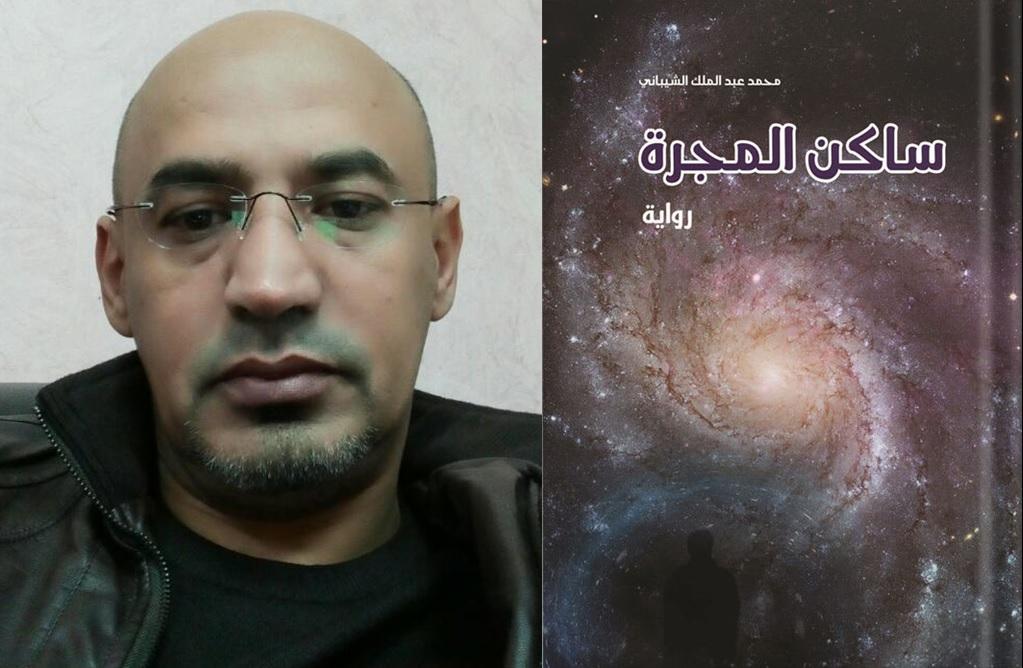
Dear Mr Mohammed Abd Al-Malik Al-Shaibani,
First, thank you for your exciting novel, Sakin Al-Majara (Resident of the Nebula). For the readers, the story is set on Earth, in an unnamed Arabic country. Still, an essential side plot involves a young Arabic man on an international space mission on an alien planet in the Andromeda Nebula.
By Emad Aysha
The earth is suffering thanks to pollution and global warming, and colonizing new worlds is a priority. Still, the Arab boy in question is part of an experiment, having plant DNA spliced into him so he can photosynthesize and cope better with hostile environments and unclean water and air.
The only catch is the boy is a big, big fan of an extremist Sheikh back on earth in that unnamed Arabic country, and the Sheikh is – not coincidentally – an opponent of the separation of science and religion. The story's foci are the two intersecting storylines of the extremist Sheikh and this young impressionable young isolated and lonely in this new world, unable to relate to his fellow crew members, Westerners to a man (and woman). The book on noor-book.com.
"First of all, let me express my gratitude for your apparent efforts to amass information about science fiction across the Arab world and the latest publications in the different Arabic countries.
It was an honour to have you read my novel Resident of the Nebula and to decide to write about it in your newspaper and I was happy to see your extensive reading of the novel and comprehension of its dimensions and overall message and pluming its inner depths.
Moreover, as is often the case with an intelligent and professional reader, you reveal extra secrets the author himself was deliberately trying to get at. I would also like to emphasis that the novel dealt with the thoughts of men of religion, not religion itself, while the character of Sheikh Salah al-Akam is the very exemplar of the corrupt scholar and there are many like him out there, a fact openly attested to by many. At the same time there are men of religion who are pure and righteous and dedicated to adding new knowledge and rulings and they are referred to in the novel, if briefly.
At this early stage I would like to give you a clarification as to the environment the novel was conceived in and from there I shall answer a number of the questions you pose.
With the latest Arab revolutions and the ability to topple people from power without bloodshed and through national consensus many genuinely thought that an Arab and Islamic Spring would occur. The Egyptian poet Hisham Al-Ghakh thought the Arabs would unite by 2016 and Sheikh Abd al-Majid Al-Zindani in Yemen thought a new Islamic Caliphate would emerge by 2021.
Or so we hoped. After 2011, everything at first was agreed upon, such as democracy and civil liberties and peaceful transition of power and old ideological struggles were forgotten. But, as time progressed, many of the victors of these revolutionary overthrows thought that they laid rightful claim to inheriting the throne and began to spread their poison towards the political other, most notably religious movements – the Muslim Brotherhood under all its various guises in the Arab world. They have the weapon of religion at their disposal, attacking others by accusing civilian rule of being a betrayal of religious principles, and mobilizing their constituency with religious slogans and using social media on a mass scale to harass rivals and attack their thoughts and writing. They is an actual broadcast of the cleric Abd al-Majid al-Zindani in the Liberty Square, in front of the protesters who were camped there in 2011, telling them that civic rule is not in our religion!
I’ve personally engaged in many debates over social media platforms, myself and likeminded people debating with Islamists about the centrality of the belief in freedom as a principle and as a necessary precondition for the success of the Arab revolutions, and the need for a secular arrangement of power to guarantee the rights of all, and the beliefs of all. But the religious groupings of course saw that power was going to flow to them and their supporters so they began attacking those who advocated civic rule as a guarantor of freedom for everybody, forgetting of course that they were in opposition at one time and demanded the self-same guarantees from the oppressive regimes.
As for myself, seeing how these groups stoked the flames and revived old grudges and rivalries between political and sectional opponents, I came to the conviction that religious movements – Sunni or Shiites – will remain a major barrier to any advancement in our nations. Not to mention that they will remain a tool in the hands of the West to keep our nations divided and abort our national programmes and destroy our national and regional regimes.
With their stalwart refusal of any kind of civil and secular governance and their incitement against it, considering it to infidel rue, and insisting on religious rule and not digesting the realities of the world and how things are constantly changing – they rely exclusively on apocryphal prophecies and traditions, not even learning their mistakes let alone the lessons of other nations – I came to ask myself this. What would happen, what would the Arab world look like say in 50 years years time, if not more? I wondered what would happen if secularism and civic rule came to sway, if these groups would give in and accommodate themselves to their new constitutional freedoms and basic rights for such things as women’s employment and freedom of the creative arts?
My answer was, clearly not!
They would fight back and refuse to let go of the one weapon they have at their disposal – something secularism would not vanquish - which is religion, claiming they are the sole representatives of God on earth, attacking everybody else who do not follow them. Their desire to constantly go back in time and live in the glories of the past would always win out and they would continue to search for props to keep themselves in the forefront as the representatives of God, exploiting these for their own personal gain.
With the incredible advance of science that has already taken place, let alone the phenomenal advances that will no doubt be made in the years to come, I began to wonder what would transpire in the future as these groups would still be in total control and now have these inventions at their disposal. They would not use these advances to traverse the cosmos and improve standards of living and push humanity forward, instead they would use the science to reinforce their controls of every aspect of people’s lives and isolate people from the produce of the human intellect – again insisting on measuring things in religious terms, in their understanding of religion. They would rely on fatwas forbidding everything, just as in fact occurred in the past with a forbidding of television and video and satellite broadcasts, and Bluetooth, etc. etc. That’s why I desired to have the story in outer space where the traditional fatwas are inapplicable, forcing people to do ijtihad (coming up with new rulings) and have a necessary confrontation with the inherited proclamations of the past that do not agree with scientific truths – especially went it comes to the Sunnah of the Prophet that has been badly authenticated if not downright forged.
So, as you can see now with these clarifications, I did not write the novel for purely scientific reasons but to explore an idea, with science as only one component of the whole. I used my knowledge and love of science to construct these pillars that upholds the structure of this story and used the sci-fi impetus as a mirror to the reality we are living now.
That being said, I do firmly believe that the author should be objective and not take sides when it comes to what he writes, and should allow the reader to make his own mind up. I made many modifications to the novel before publishing it since my own points of view were too clearly evident in it at first. That’s not right for an author. You should only hint at what you think through allusions and leave the rest up to the readership. That’s why I’m so committed to informing you of all this, in response to your polite inquiries.
Some basics questions about your good person. Are you a professional writer? What’s your education and current job? Is this your first SF story? Do you write in other genres? What authors and works did you read while growing up? Were you influenced by Nabil Farouk and Ahmed Khaled Tawfik?
Some facts about me. Muhammad Abd Al-Malik Al-Shiabani, 48 years of age. I have a BA in medical analysis. I work currently in commerce. I have two published books – Resident of the Nebula (novel, Ali Matab (anthology).
I fell in love with scientific fiction on account of how flexible its language is. So simple and direct.
Yes I have read a great deal of Dr. Nabil Fariuk and Dr. Ahmed Khaled Tawfik, God rest their souls. Their writings were a great inspiration for me and from my teens. Even in this novel you find stylistic traces from their works. I have also read Mustafa Mahmoud, Naguib Mahfouz, Ihsan Abd al-Qudus and Muhammad Abd al-Halim Abd Allah, and for Yemeni authors like Muhammad Abd al-Wali, Habib Sorouri and Ali Al-Maqri. I’m also a big Dan Brown fan and love Paulo Coelho.
Please tell me something about SF in Yemen. Mr Wajdi Al-Ahdal has written a number of SF stories and there is Habib Abd Al-Rabb Sorouri, who has written two SF novels to my knowledge, and Abdulnasser Mugali who famously wrote Geography of Water. (I had the privilege of interviewing Mr Wajdi for Arab and Muslim Science Fiction: Critical Essays [McFarland, 2022] and almost got Mr Habib involved in our book). This is encouraging but also very limited. What encouraged you to write an SF novel and what inspired this particular story?
The writers of science fiction are few and far in between in my country and the truth is this avenue is not encouraged and is not taken as a priority by the literary institutions in Yemen, such as the federation of writers or the collection of government agencies dedicated to art and literature such as the ministry of culture. We have many distinguished authors who have been short listed for international prizes, like the Booker Prize, but to my knowledge none of them are concerned with the scientific novel, with the small exception of Professor Habib Abd al-Rab Sorouri, perhaps because he is scientific and academic background. Just look at his novels The Hoopoe Report or his latest novel. And despite the presence of other writers with a scientific background, like the heart doctor Dr. Marwan Al-Ghafouri in Germany, you still have a gap because their literary interests don’t go beyond the historical novel or realism, which focus on the social and political problems of Yemen.
One of the things that drove me to write science fiction was an attempt to paint a futuristic picture of the Arabic world with all its ridiculous and grimy problems, all based upon our problems of today and our way of thinking and struggles that won’t change any time soon.
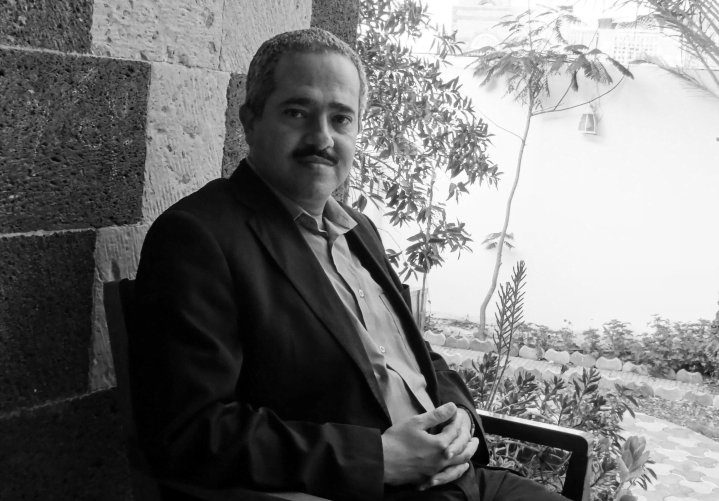
Did you publish Resident of the Nebula in Egypt to get around publishing problems in Yemen?
I published the book via an Egyptian publisher – I paid for it – and was contracted for a 1000 copies. I learned later that that they only published a handful of copies, on an initial basis to see how well it sold to reach the original number of a 1000. That’s why it was not available at many exhibitions and books fairs. Even at the Cairo International Book Fair, when I visited it, I did not find my novel at the publisher’s stall. The guy said he had five copies and they all were sold on the first day. I presume this was an excuse.
Tell me something about the protagonist in the story, the evil Sheikh Saleh Al-Akam?
There is a symbolism implicit in the name of hero of the novel, Saleh Al-Akam, since Saleh meaning GOOD PERSON is a very popular name in Yemen. As for Al-Akam, this is a verb in Arabic, from ya’akum which is ‘blocking’- that’s what he does in the story, blocking enlightenment and seeing things as they are, and the progress of knowledge.
I did base him on an actual person, without naming names.
I’m intrigued by the genetic experiment in the story. It pops up in other works of Arabic science fiction. Subhi Fahamawi, a Jordanian-Palestinian author, has a character transformed into a docile, peace-loving individual through this DNA splicing in his novel Alexandria 2050. Mauritanian author Moussa Ould Ebnou also has a short story where a Muslim in the future signs up to a tourist company and part of the package deal is to have plant DNA put into you to become more spiritual and not have to eat meat anymore. (I haven’t come across this nearly as much in Western SF, except for the X-Files to be honest).
Is this a coincidence? Do we all secretly want to become potted plants in the Arab world?! What motivated you to use this particular plot device?
The genetically-modified young man, he’s not a conspirator. He went on the space mission with the desire for science but the psychological circumstances he endured lead him down the path of depression and so he became an easy morsel in the mouth of the religious ceric Al-Akam who used him to carry out his plots and agenda.
My preference is for the term genetic-modification than gene splicing,. You are free to use any term you like, however.
Genetic modification for humans is still something far away but it could be attained, in partial form in the coming decades to confront certain illnesses and replacing organs. As for the green man in the novel, I’d come across this in a book on futurist studies, from 30 years ago in fact, when I was at high school. I used this tool in my story to indicate two factors, the first being technological advance. The second was man’s rootedness to the earth and how they’re like plants, that they wither away if you transport them away from their environment. I also used this as an opportunity to have a scientific discussion among the crewmembers in the Nebula, about how connected they are to the earth as their homeland and whether they believe in geographical borders anymore now that they are in another galaxy.
Unfortunately I did not read those novels you mentioned which spoke about genetically-modified humans.
Why do you describe the Middle East as al-sharq al-hash (the soft or fragile East)? You describe how this particular part of the world doesn’t advance, even though North Africa has done quite well. (The evil Sheikh solves the unemployment problem by keeping women out of the workplace, making the Arab east better than the West in this area).
The fragile east is the country afflicted with conflicts and crisis and for more than one reason – struggles with foreign powers that don’t want the Middle East to rise, relying on their military and financial power and their science, plotting and scheming against us. Countries like the United States, the West, Israel. Not to forget of course our own religious internal conflicts.
You clearly don’t agree with the points of view of the evil Sheikh, Saleh Al-Akam, on separating religion and knowledge and you have viewers who call his satellite programme to complain to him about how we have fallen behind as Muslims in all walks of science – including astronomy, even though it was a Muslim astronomer who discovered the Andromeda nebula. (I didn’t know that myself!) You also have a good Sheikh who is teaching his kid Hayy ibn Yaqzan and the great works of Islamic civilization. I presume it is this Sheikh who gets killed by extremists later in the novel, right?
The audience of Saleh Al-Akam that call his TV programme are either opponents, such as the caller who explained that the galaxy of the Andromeda nebula was discovered by an Arab astronomer, a Sufi in fact, and he tries to criticize his attempt to drag science into a conflict with religion by tying them together as he does. The rest of his audience of course are the naive who will follow the Sheikh to wherever he leads them.
Yes, the ideal man of religion, the knowledgeable man and the true intellectual, the person I love and threw into the fray to be a counterpoint to corrupt Sheikh. Of course he was assassinated by the extremists as he posed a threat to their extremist thoughts.
You paint a grim picture here but Western civilization, which is completely divorced from religion, doesn’t fare much better. You have unemployment because of robots and AI software, you have synaptic reprogramming (for psychiatric treatment and mental illnesses) and you have prostitutes going out of work because of sexbots. Not to forget pollution and global warming, again. Why so cruel to both sides? Rather bleak, don’t you think?!
I wanted to be neutral as scientific advance also has a downside, such as discarding employees in many traditional industries in favour of machines, even in the sex industry. They have dolls now that have more specialities than the women who sell themselves in the pleasure sector, and cheaper and more cooperative too. There’s bound to be certain occupations that will disappear entirely because of mechanization and I honestly don’t know how they will solve these problems in the future, and the problems that will develop as science advances and brings us many undoubtable advantages.
I will take issue with one thing here. You don’t agree with the use of the black seed combined with natural honey as a medical treatment. I’ll have you know I’ve been taking the black seed for chest pains and it’s been working well. And the friend who advised me to take it was a Christian, by the way!
As for the black seed and honey I merely wanted to highlight their exaggeration of their benefits as they are a magical cure to all ailments, to make money. That is certainly the case in a country like Yemen where religious figures have a stranglehold on a large sector of the economy via these ploys. But I’m all for natural substances and use them myself, especially honey.
In a penultimate sequence in the novel you have two of the crew of the space mission, a woman and man, having sex to see if they can breed and raise a child on this hostile planet. (They leave the radio on while doing it, just in case they need to call for help, and the rest of the crew watch and some even ‘enjoy’ themselves – no comment). You never give their names, merely calling them 6 and 9, and they are referred to as team 69.
Is this a sexual reference? I think 69 is a sexual position!
Yes 69 is a sexual posture and I utilized it as a way of highlighting the nature of sexual desire, natural needs that will operate even in outer space.
The Arab member of the crew who is eventually seduced by Sheikh Saleh Al-Akam’s views and fatwas is suffering from bouts of depression – his serotonin levels are declining as the experiment proves its failure – and is also suffering from terrible feelings of loneliness. He’s had a happy life up to this point, a liberal life of sex and drink, but out there, isolated from his people and homeland, he feels he has no sense of mission and his life is pointless.
Is this a dialogue about Arabs and Muslims abroad, living in the West, especially those who become extremists? Is this a reference to the 9/11 hijackers?
The Arab boy suffering from loneliness outside the earth and falling as an easy prey to Al-Akam can apply to any similar case the reader can make, including of course the 9/11 attacks.
There’s racism too. The girl, number 6, refused to do it with him, on account of his ‘green’ blood. Would you say racism is another big motivator behind extremism and terrorism?
The highlighting of racism is a highlighting of the fact that human beings will take their prejudices wherever they go; and yes racism is one of the reasons for extremism and terrorism between the human race.
I won’t lie to you, I ‘was’ a bit disappointed by the ending. (I won’t spoil it for the reader). I was hoping the unnamed Arab crew member would reform himself or the researchers back on Earth would intervene at the last minute. You have a plotline where the professor in charge of the experiment realizes what’s happening to the boy’s serotonin levels. (The plant experiment is failing, like a plant withering in foreign soil as he says – what an interesting analogy). If that’s mentioned and there are characters involved, you would think that side-plot would come to fruition and the scientists warn the crew about the Arab boy or the boy would figure it out himself.
Why so depressing? Was this deliberate? Is your novel an example of dystopian SF?
I do not agree with the labeling of the changes that occur in a genetically modified person, to become a plant, as a failed experiment. His wilting was because he was away from the earth and at the same time scientific curiosity could lead to bad results. That is what happens with the doctor in charge of the experiment. He was afraid to recall the modified man, fearing for his health upon returning, and also wanted to let the experiment proceed for as long as possible to get all the data he needed on the process especially outside of the earth environment.
The grim, depressing ending of the story can be interpreted by the reader any way they please – as the eternal contest between good and evil, or success and failure, or victory and defeat, etc.
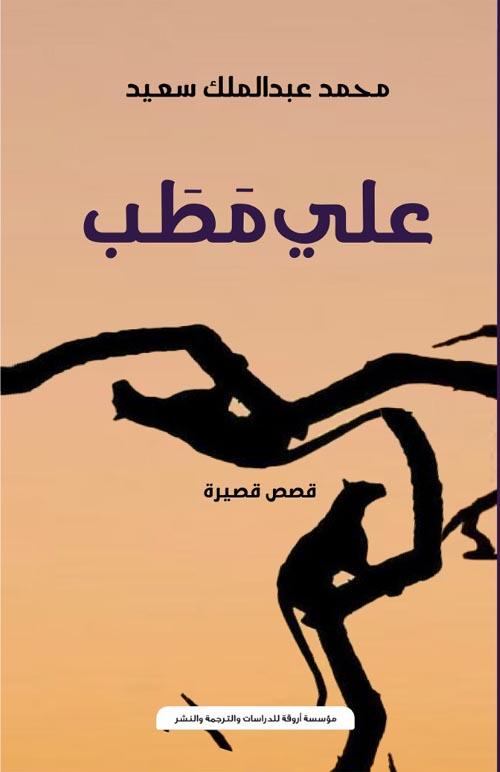
You also have a side plot of the Sheikh and his Ethiopian maid and how he takes advantage of her, treating her like a slave girl with certain sexual rights and ‘needs’. The man also has four wives, and one for political reasons. The novel is clearly a satire of the current situation we’re in with traditionalists dreaming of past glories.
Are things really that bad in the fragile east?
As I clarified in the beginning the reality of today is a mirror of the fragile east in the future and it is the fulcrum of the novel as there are two key storylines – science leading man to conquer the universe while another path that took its people to a fragile country full of struggles and lead by the corrupt.
I had a lot of respect for Sheikh’s wives. They accept his polygamy and are very dutiful to the point of not going to sleep until he sleeps first, and always asking after his health. (Not that he appreciates any of this). It’s good to see the traditional Arab family is still very stable and true to its roots.
I was reading a book by an Egyptian professor once about Yemen, researching it actually for an SF work of my own, and you found that Yemeni men have multiple wives over their whole career. Their mothers are the ones who get them wives from a young age and over different stages of their lives. Or is that only true in certain parts of Yemen and not others?
The wives of Sheikh Al-Akam are a testament to the ability of religious figures to manipulate the sentiments of people and change their convictions and direct them any way they please.
Polygamy was very popular at one point in time, in the whole of Yemen, but began to decrease gradually and even bring problems with it. But it is still popular in tribal areas in the north, and often mothers can drive their sons to have more wives, for personal reasons.
I wouldn’t advise discussing the prospect of having a second wife in front of your first wife however, even in Yemen!
To finish off, please tell me how well your novel has done, here and in Yemen? And what are your future plans? Any other SF works in store?
As I said writing SF is so liberating I insist that I’m going to try my hand at it a second time wherever and whenever I find an intriguing and original idea that pulls me towards writing, and won’t leave my desk till I finish!
AUTHOR’S NOTE:
The interview questions were in English but the answers came back in Arabic. Translated from the original by Emad El-Din Aysha, an active member of the Egyptian Society for Science Fiction, and the Egyptian Writers’ Union. He now has his own webpage dedicated to journalism and science fiction.
Special thanks are also due to Mr Wajdi Al-Ahdal for putting me in touch with Mohammed Al-Shaibani. For his contribution to the ESSF’s McFarland book please see “SF for a Troubled Nation: An Interview from Yemen with Wajdi Muhammad Al-Ahdal”, pp. 179-184.


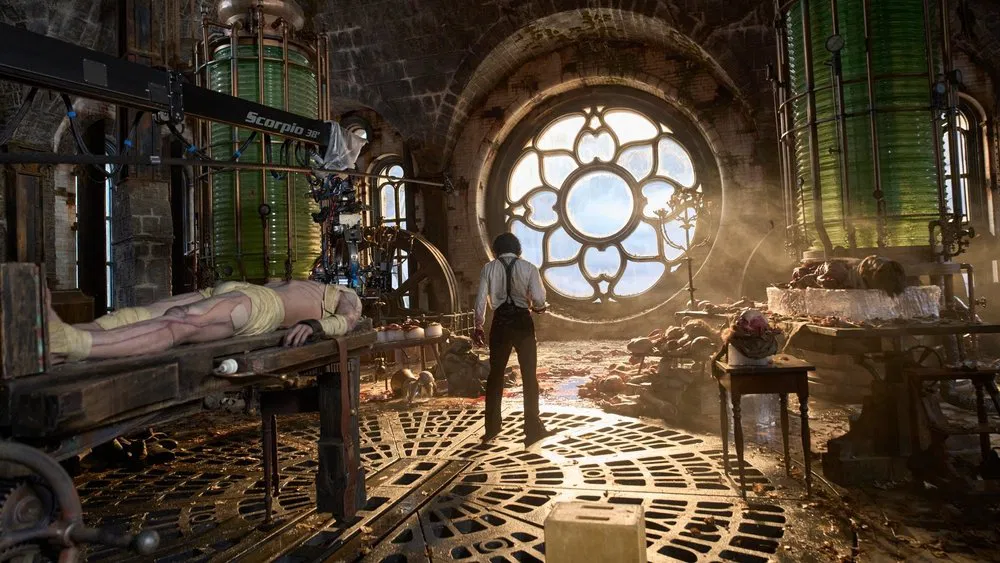


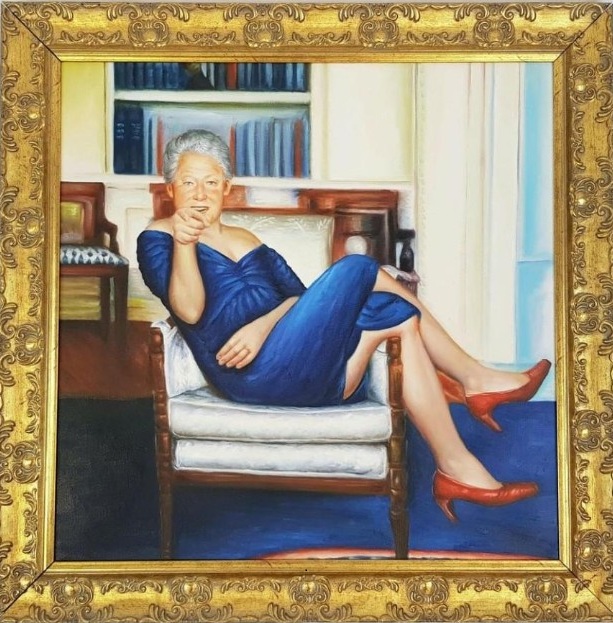

the like to downloawd the Novel is
here https://www.noor-book.com/%D9%83%D8%AA%D8%A7%D8%A8-%D8%B3%D8%A7%D9%83%D9%86-%D8%A7%D9%84%D9%85%D8%AC%D8%B1%D9%87-pdf
Amazing, go ahead!